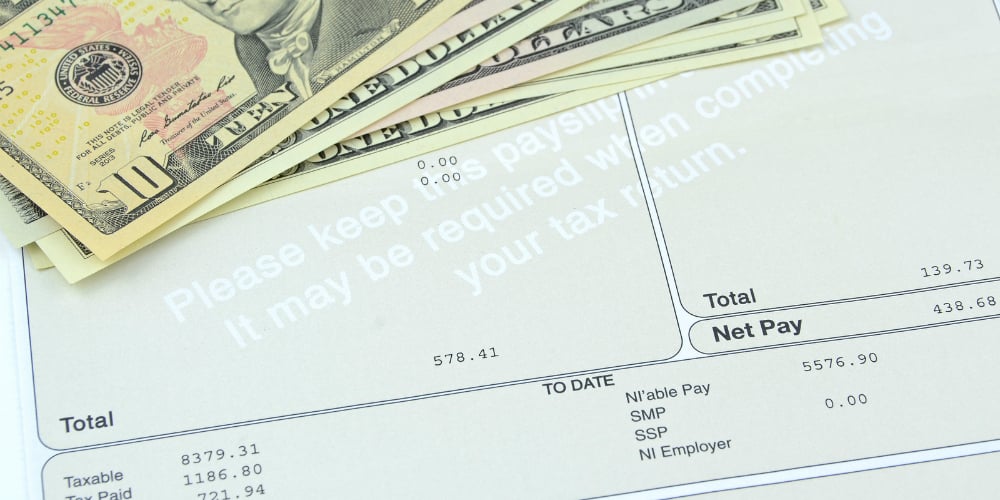How gross pay becomes net pay

Anytime your pay changes, whether it be the result of a new job or a pay raise, you immediately wonder what that next paycheck is going to look like. It’d be nice if it was as simple as dividing your yearly pay by 52, but unfortunately your gross pay isn’t that magic number you’re looking for. Here’s a look at the deductions we all have to deal with that create our net pay.
Federal Income Tax
The federal government is the first to take their “share” of your money. Tax rates are separated into several different tax brackets, and the amount withheld is based on your salary and the W-4 you filled out when you started your job. The more dependents you claim, the less money the government takes out of your check. Make sure you don’t take too many allowances if you want to be sure you won’t owe money at tax time.
State Income Tax
After the federal government takes a chunk, it’s your state’s turn. If you live in Alaska, Florida, Nevada, New Hampshire, South Dakota, Tennessee, Texas, Washington, or Wyoming, you don’t pay a state income tax. Unfortunately, the rest of us do. This tax works the same way the federal tax does, so adjust accordingly.
Federal Insurance Contribution Act (FICA)
The FICA deductions that we all pay are in order to fund two programs: Medicare and Social Security. Social Security takes 6.2% from both the employee and the employer, with Medicare doing the same with a rate of 1.45%. Both of these programs can benefit the elderly and retired, so you can always look at it as something that will one day benefit you or someone you love.
Insurance or Retirement
Both of these deductions are voluntary, so you are in complete control of whether or not they will affect your take home pay. A 401(k) or IRA, as well as an adjusted health insurance rate through your company is usually a pretty good idea, so you may want to take advantage of these opportunities.





